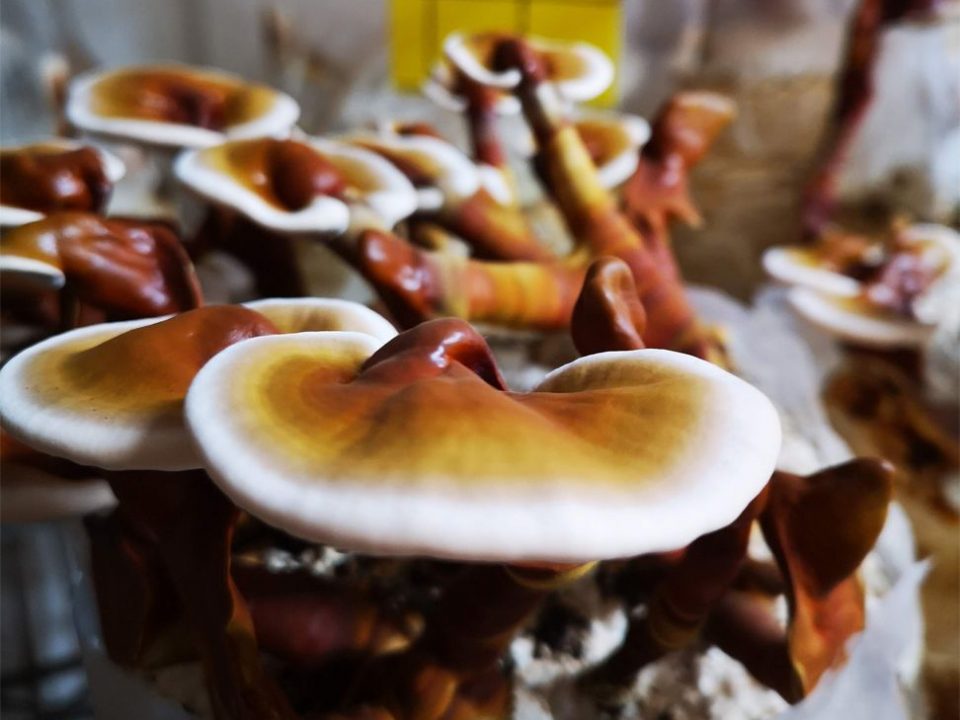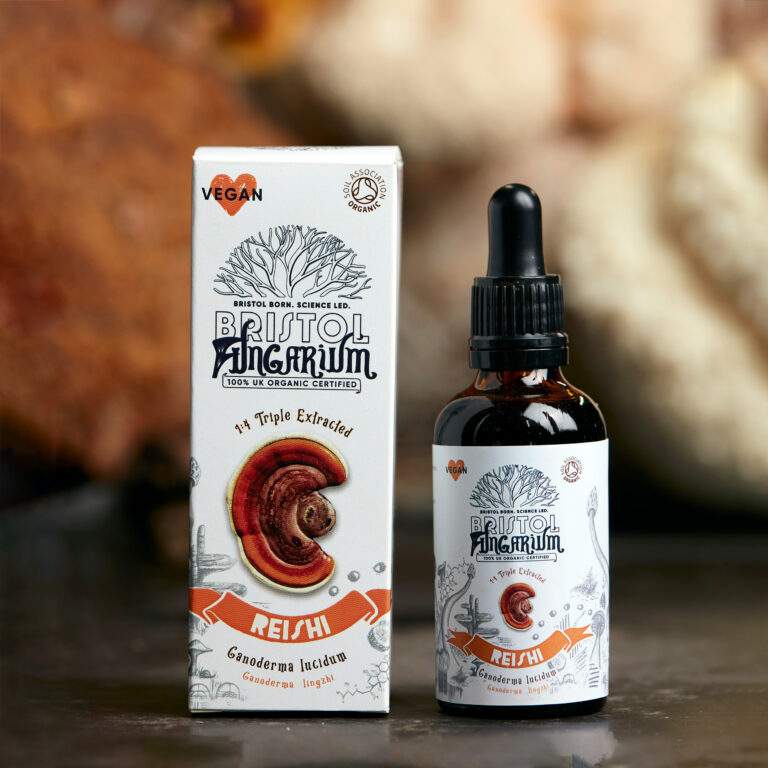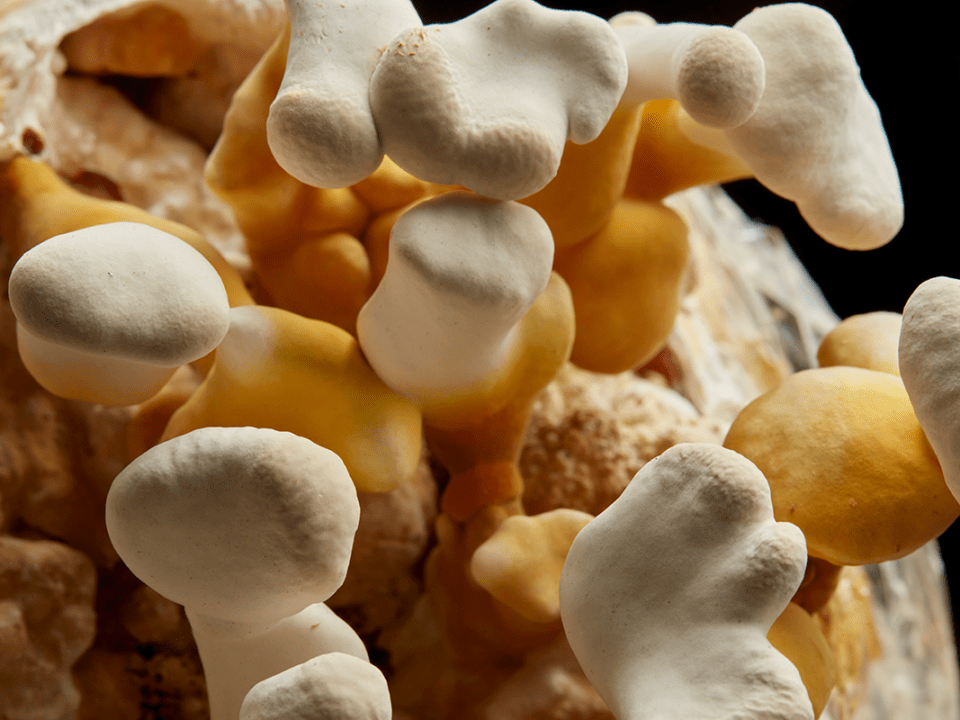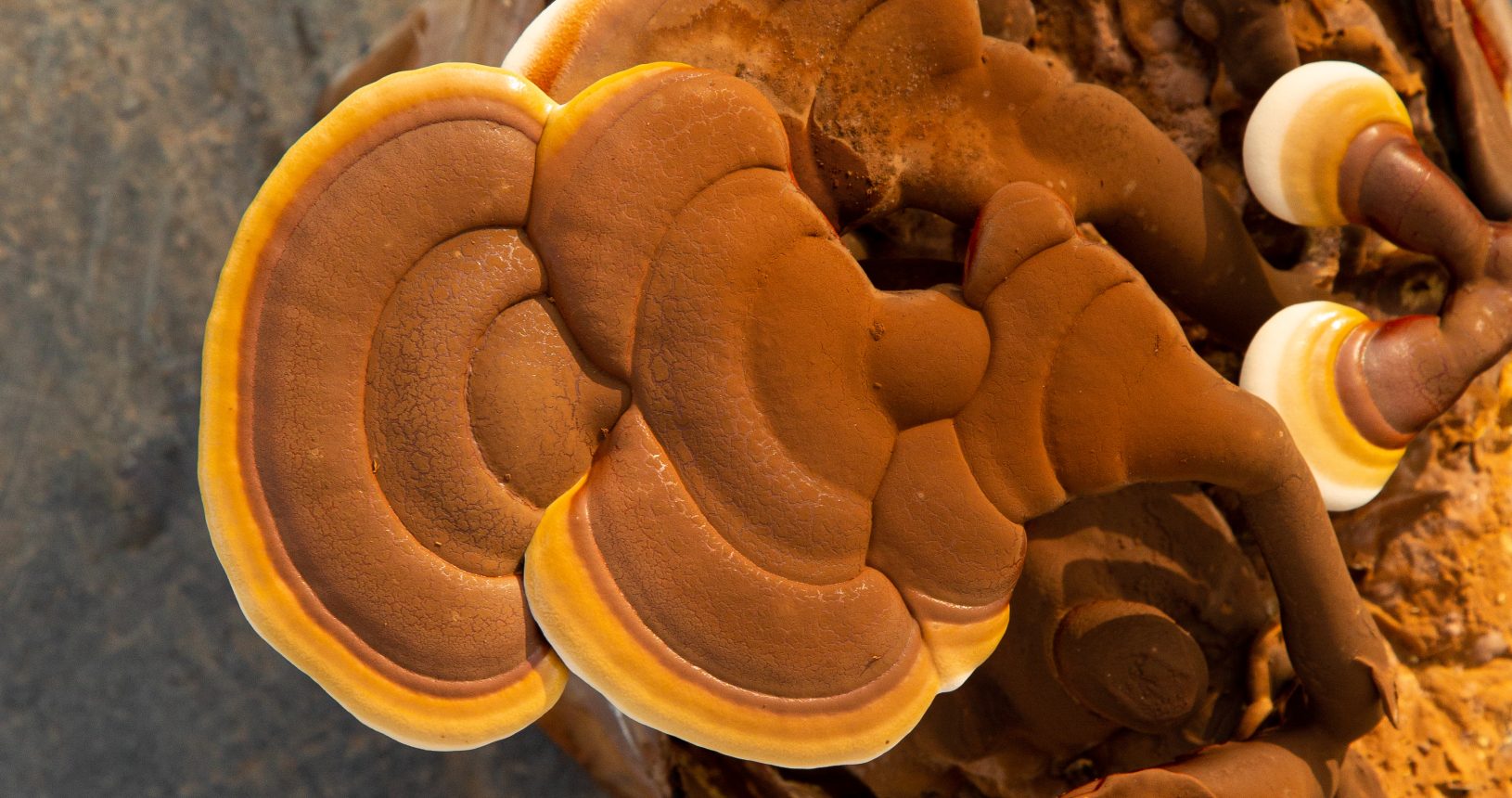Oyster Mushrooms: medicinal fungi’s unsung hero
17 October 2024Reishi: Nature’s Answer to Stress and Inflammation
Understanding Reishi's active compounds, can help us navigate the challenges of modern life.

In our fast-paced, modern world, stress has become a daily struggle for most of us. From juggling multiple responsibilities and personal challenges to constantly striving for the next goal, stress has been normalised in today’s productivity-obsessed society. Now, while short bursts of stress can be motivating and even good for us in some ways, prolonged exposure can have detrimental effects on both our mental and physical health. Elevated stress levels have been linked to increased inflammation, risk of disease, premature ageing, and even a shorter lifespan1. (Polsky, Rentscher and Carroll, 2022)
Fortunately, nature provides us with some incredible allies, one of which is the Reishi mushroom (Ganoderma lucidum). Known as the “mushroom of immortality” in the East, Reishi has been used for centuries to combat stress and promote longevity. Western scientific research is now validating these traditional claims, uncovering the mechanisms behind Reishi’s stress-busting properties.
By exploring Reishi’s active compounds, we can better understand how this ancient fungus can help us navigate the challenges of modern life and maintain optimal well-being.

Understanding The Compounds of Interest
At the heart of Reishi’s health-promoting properties are compounds known as triterpenes and polysaccharides. These are responsible for many of the mushroom’s beneficial effects, including its ability to reduce inflammation and help alleviate stress, in the brain and beyond. Among the triterpenes are Ganoderic acids. Ganoderic Acids A and F stand out due to their structural similarity, mimicry and modulation of cortisol, the hormone primarily involved in stress responses.

Stress, Cortisol and Inflammation: A Vicious Cycle
Cortisol is essential for our body’s alert system, the sympathetic nervous system (fight-or-flight response), helping us manage stress in the short term. Its released from our adrenal glands during stressful events. However, getting stuck in this survival mode can lead to prolonged cortisol release, desensitising the body to its effects, resulting in a weakened immune system and chronic inflammation.
Inflammation is a natural response of our immune system, designed to protect us from harm and promote healing. However, when it becomes chronic, it can contribute to various long-term health problems, including heart disease, type 2 diabetes, and autoimmune diseases. Likewise, chronic neuro-inflammation (inflammation in the brain) contributes to reduced cognitive ability, brain fog, psychiatric conditions such as depression and anxiety, and even neurodegenerative diseases including Alzheimer’s disease. Stress is one of the significant contributors to inflammation, creating a vicious cycle that can be challenging to break.
Reishi to the Rescue: Downregulation of Inflammation
Research has shown that Reishi mushrooms can help reduce inflammation in the body, particularly in the brain. Microglia, the immune cells of the brain, become activated during times of stress, releasing a cocktail of pro-inflammatory chemical messengers which can lead to neuro-inflammation and further exacerbate stress-related symptoms.
By targeting this neuroinflammatory pathway, a key contributor to stress-related symptoms, Reishi may offer significant benefits. Studies in cells and animals have shown that the active compounds, Ganoderic acids A and F, and Reishi polysaccharides can:
- Downregulate microglial activation: Reducing the release of pro-inflammatory cytokines and promoting a more balanced immune response2,3,4. (Cai, Li and Pei, 2017; Sheng et al., 2019; Jia et al., 2021)
- Increase anti-inflammatory and antioxidant compounds: Countering the harmful effects of oxidative stress and inflammation4. (Jia et al., 2021)
- Regulate signalling pathways associated with neurodegeneration: Potentially decreasing risk of memory and cognitive decline, and associated diseases5. (Chen et al., 2024)
- Prevent the death of brain (neuronal) cells: Promoting brain health and integrity5. (Chen et al., 2024)
These neuroprotective effects are particularly relevant for individuals experiencing chronic stress, as they can help improve mood, cognitive function, and overall mental health.

Beyond its anti-inflammatory properties, Reishi’s adaptogenic abilities can also help regulate cortisol levels, the stress hormone. By supporting the body’s ability to calm the nervous system, switching from the “fight-or-flight” response to a more relaxed ‘rest-and-digest’ parasympathetic state, Reishi may contribute to reduced anxiety and improved mood. Clinical studies have further confirmed Reishi’s positive effects on mood, well-being, and stress reduction in both human and animal models6,7. (Fijałkowska et al., 2022; Tang et al., 2005)
Conclusion
In a world where stress is often unavoidable, natural solutions like Reishi mushrooms allow us greater control over our health. With its powerful ability to combat inflammation and regulate the body’s stress response, Reishi offers a promising path to improved mental health and resilience, increased bounce-back-ability, and a clearer, more positive outlook.
As you explore ways to manage stress, consider integrating Reishi into your lifestyle. Embrace the power of nature and let Reishi disrupt the progression of chronic stress to chronic disease, and help you on your journey to a more balanced and stress-free life.
Give it a go for yourself, try our Organic Reishi tincture here.
References;
- Polsky, L.R., Rentscher, K.E. and Carroll, J.E., 2022. Stress-induced biological aging: A review and guide for research priorities. Brain, behavior, and immunity, 104, pp.97-109. (Polsky, Rentscher and Carroll, 2022)
- Cai, Q., Li, Y. and Pei, G., 2017. Polysaccharides from Ganoderma lucidum attenuate microglia-mediated neuroinflammation and modulate microglial phagocytosis and behavioural response. Journal of neuroinflammation, 14, pp.1-13. (Cai, Li and Pei, 2017)
- Sheng, F., Zhang, L., Wang, S., Yang, L. and Li, P., 2019. Deacetyl ganoderic acid F inhibits LPS-induced neural inflammation via NF-κB pathway both in vitro and in vivo. Nutrients, 12(1), p.85. (Sheng et al., 2019)
- Jia, Y., Zhang, D., Yin, H., Li, H., Du, J. and Bao, H., 2021. Ganoderic acid A attenuates LPS-induced neuroinflammation in BV2 microglia by activating farnesoid X receptor. Neurochemical Research, 46, pp.1725-1736. (Jia et al., 2021)
- Chen, X.J., Deng, Z., Zhang, L.L., Pan, Y., Fu, J., Zou, L., Bai, Z., Xiao, X. and Sheng, F., 2024. Therapeutic potential of the medicinal mushroom Ganoderma lucidum against Alzheimer’s disease. Biomedicine & Pharmacotherapy, 172, p.116222. (Chen et al., 2024)
- Fijałkowska, A., Jędrejko, K., Sułkowska-Ziaja, K., Ziaja, M., Kała, K. and Muszyńska, B., 2022. Edible mushrooms as a potential component of dietary interventions for major depressive disorder. Foods, 11(10), p.1489. (Fijałkowska et al., 2022)
- Tang, W., Gao, Y., Chen, G., Gao, H., Dai, X., Ye, J., Chan, E., Huang, M. and Zhou, S., 2005. A randomized, double-blind and placebo-controlled study of a Ganoderma lucidum polysaccharide extract in neurasthenia. Journal of medicinal food, 8(1), pp.53-58. (Tang et al., 2005)




